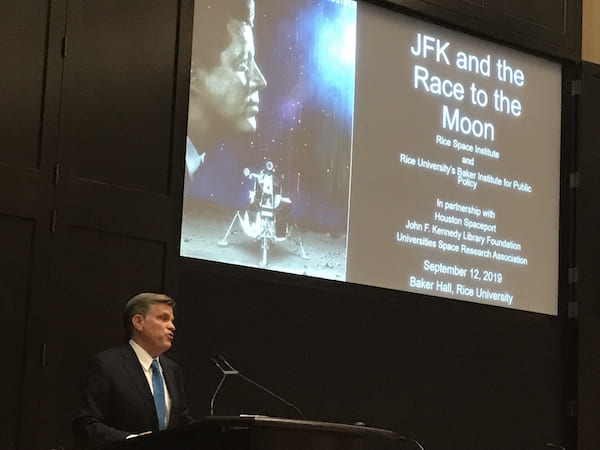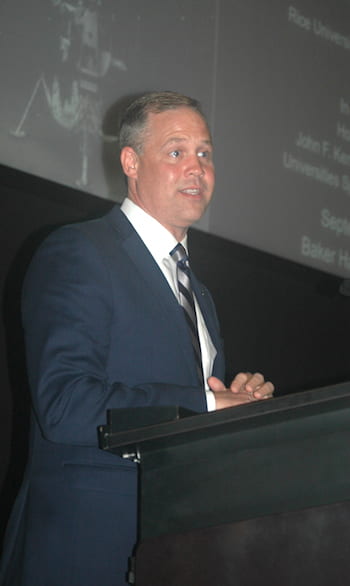
A nearly full house at the Baker Institute for Public Policy on Sept. 12 heard inspirational talks about the legacy of President John F. Kennedy and his promise to get mankind to the moon, as well as the future of the nation’s space program and the science that will result.
 NASA Administrator and Rice alumnus Jim Bridenstine ’98, left, told the audience how Kennedy’s successful drive is informing the Artemis moon mission and future missions to Mars, not only as a powerful tool for American diplomacy but also for the science that will result.
NASA Administrator and Rice alumnus Jim Bridenstine ’98, left, told the audience how Kennedy’s successful drive is informing the Artemis moon mission and future missions to Mars, not only as a powerful tool for American diplomacy but also for the science that will result.
“I think we’re three to seven years away from one technological breakthrough that is going to ultimately transform space to be a commercial marketplace for human habitation,” Bridenstine said.
Author and Rice history professor Douglas Brinkley, above, delivered a talk about the history of the space program from Robert Goddard’s rockets through the fulfillment of Kennedy’s promise to get to the moon by the end of the 1960s.
Panel discussions featuring space experts, including George Abbey, former Johnson Space Center director and a space policy fellow at the Baker Institute, and Rice professors who talked about future technological “moonshots,” followed the lectures.
Video of the event will be available on YouTube and through the Rice Space Institute website.
The institute hosted the event with the Baker Institute, the John F. Kennedy Library Foundation, the Universities Space Research Association (USRA) and Houston Spaceport.

